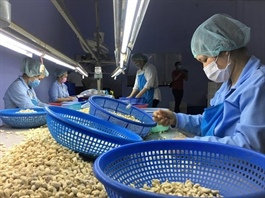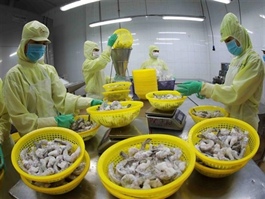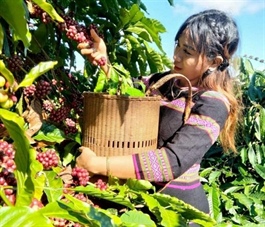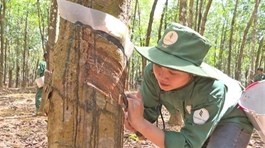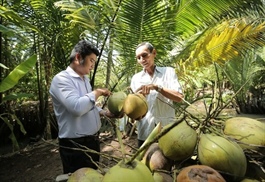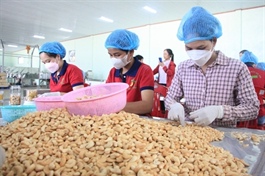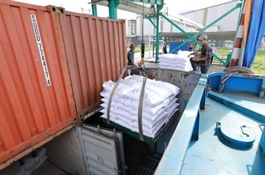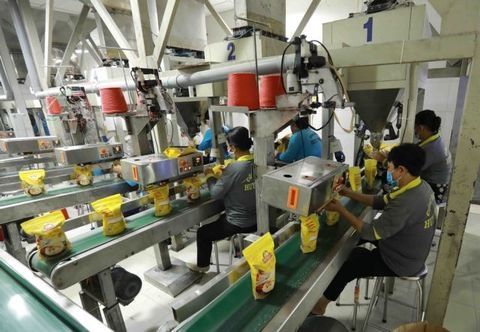Vietnamese pellet market experiencing a reshuffle
Vietnamese pellet market experiencing a reshuffle
The alteration of import markets is forcing Vietnam’s pellet manufacturers to reevaluate their overall competitiveness.

Increasing pellet exports to the EU is a goal for many Vietnamese groups. Biomass Fuel Vietnam Co., Ltd. will export pellets to the EU market in the “near future,” according to the company’s general director, Eisuke Nomura. Biomass Fuel Vietnam has a factory in the central province of Nghe An, from which it exports about 160,000 tonnes annually to the Japanese market.
The EU is not as favourable for exporting pellets as Japan and South Korea, which import up to 95 per cent of Vietnam’s pellets. The raw materials for the manufacturing of pellets, which are generally burned for heat, although they may also be used to generate process steam or electricity, must come from plantations with Forest Stewardship Council (FSC) certification, according to Nguyen Kim Vui, the executive director of Dung Quat Energy Corporation’s pellet factory in the south-central province of Quang Ngai.
According to information published on the FSC website, as of March 2022, Vietnam possessed 53 FSC-certified units covering a total forest area of over 226,000 hectares.
“The next challenge is the quality of wood pellets,” Vui explained. “EU pellet standards are stricter than those for exports to Japan and South Korea.”
The Japanese market demands 3 per cent ash content, whereas the EU requires less than 1 per cent. Vui said his company is attempting to sign contracts for the purchase of raw materials from FSC-certified afforestation facilities, ensuring the source of raw materials for the annual export of 240,000 tonnes of pellets to the EU, Japan, and South Korea.
Forest Trends and Vietnamese wood associations noted in a report on the issue, published at the beginning of July, that the Japanese market is comparable to the EU market in terms of raw material regulations and that FSC certification is required. Vietnam will export about one million tonnes of pellets to Japan in 2023, a modest amount compared to the country’s annual demand of eight million tonnes.
According to a previous report, some Japanese customers engage in short-term contracts with certain Vietnamese suppliers; the price is around $125 per tonne, and the pellets’ quality is comparable to those exported under long-term contracts.
According to statistics from the General Department of Vietnam Customs, the number of Vietnamese firms exporting pellets increased significantly from 123 in 2020 to 152 in 2022. To Xuan Phuc, managing director of Forest Trends, said the number of businesses exporting to Japan is lower than that of South Korea.
Due to the consequences of rising raw material prices in Vietnam, the export price for pellets from South Korea rose to $110 per tonne at the beginning of this month, an enormous rise from April, when it was only $90 per tonne. “The purchasing method of South Korean buyers has changed significantly. Rather than purchasing pellets in bulk, they are dividing the bidding batches and purchasing in smaller monthly amounts to alleviate price pressure,” Phuc said.
Some manufacturers informed him that it is getting harder for Vietnamese pellet producers when the South Korean government advocates expansion of supply, including imports from Russia. Currently, a number of privately owned, small-scale power facilities in South Korea import pellets from Russia. Prior to the Russia-Ukraine conflict, Russia exported around three million tonnes of pellets annually, primarily to the EU.
Some Russian pellet makers tolerate low-priced sales in order to gain entry into the market. According to Phuc, the possibility of growing the market share of Russian pellets in South Korea will be limited if sanctions are imposed on Russian exports, causing state-owned energy companies and major South Korean firms to refuse to use these pellets.
Dr. Lee Soo Min, a senior research specialist at the Korean National Institute of Forest Science (KNIFS), stated in March that two wood pellet factories utilising plantation materials, with a designed capacity of 300,000 tonnes per year, will soon go into operation, while about 20 other factories are already in operation, producing about one million tonnes per year.
According to Lee, this outcome is far from self-sufficient but presents the potential for countries to export pellets. “Vietnam has the chance to boost its market share in the South Korean market; however, numerous suppliers have reservations that if they do not drastically alter the calibre of products, they will not be able to keep up with emerging sources such as Indonesia and Malaysia,” Lee said.
According to KNIFS data, Vietnam was South Korea’s primary pellet supplier in 2022 and accounted for 80 per cent of its pellet imports, with 2.2 million tonnes. Vietnam, the world’s second-largest pellet producer after the US, exported 4.9 million tonnes of pellets in 2022, worth $790 million, according to the General Department of Customs.







